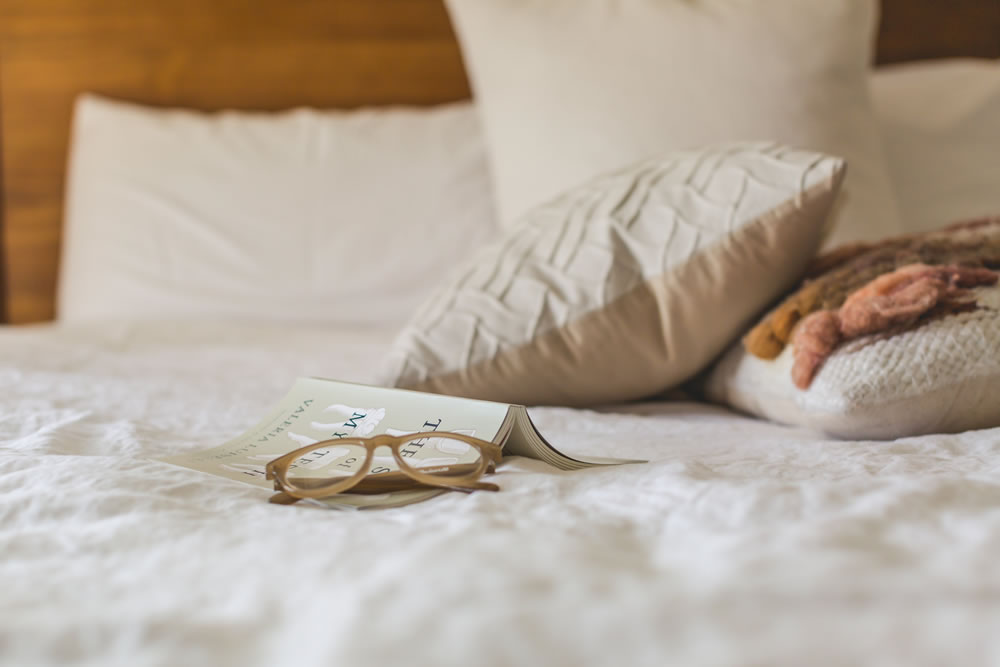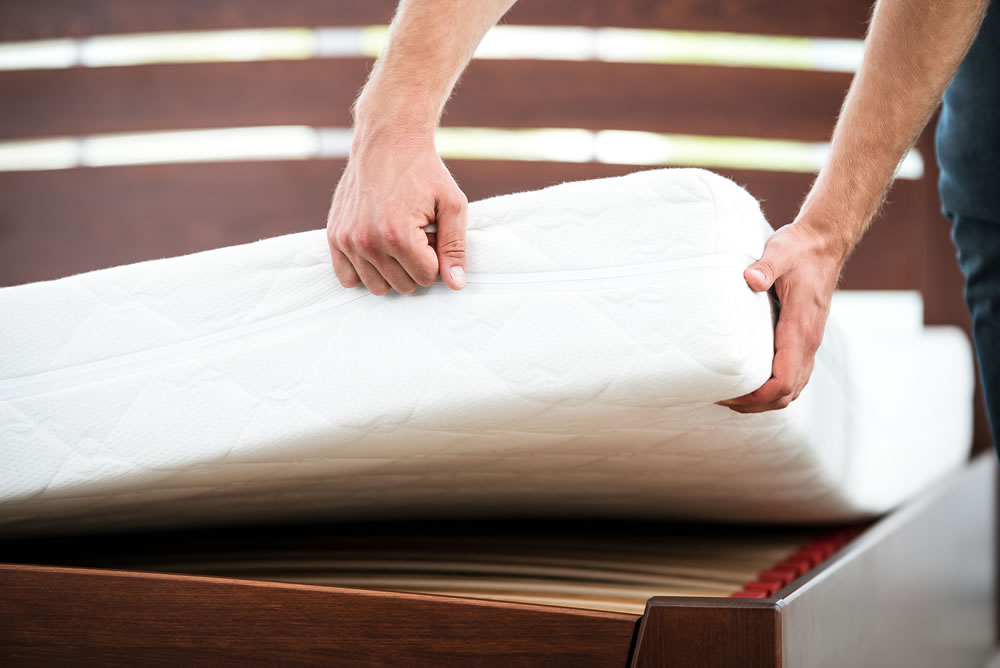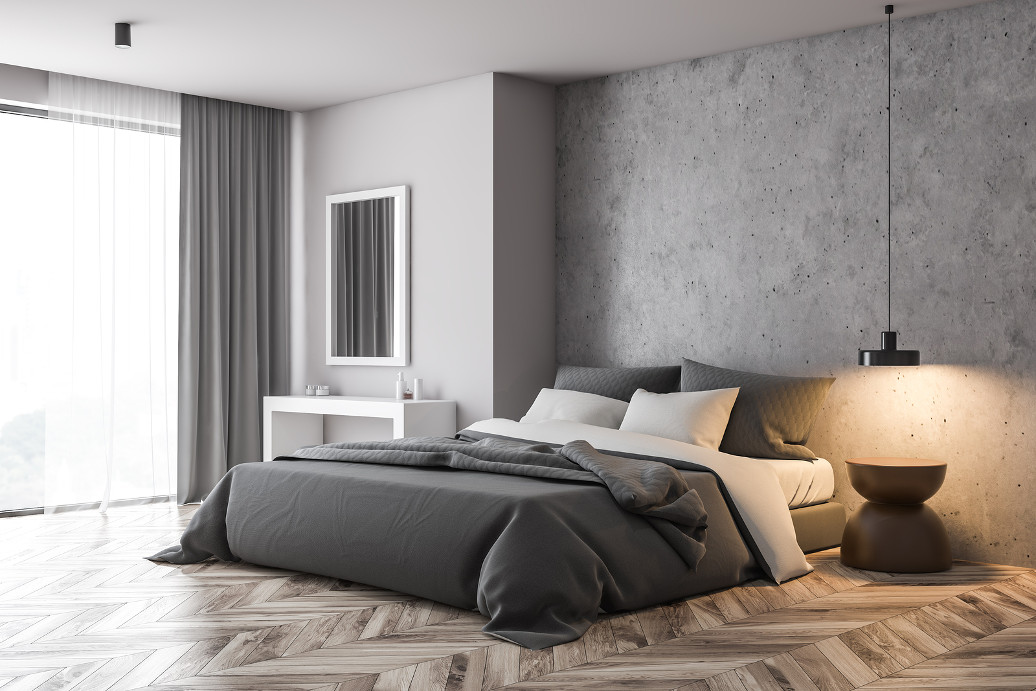There are few things more important than getting a good night’s sleep. Vital for good health and equally important if we want to perform well the following day, sleep experts recommend we get between eight and nine hours of shut-eye each night; however, the CDC estimates nearly one-third of adults are getting less than seven hours each night.
Just as important as a healthy diet and exercise, sleep is a time for our bodies to repair and our brains to process and consolidate memories. But for some of us, a solid stretch of quality sleep seems unattainable.
Thanks to today’s fast-paced, always-on world, it is becoming increasingly difficult to switch off, and insomnia and broken sleep are commonplace – but the good news is that with a few simple tweaks to your bedroom, plus an overhaul of your bedtime routine, you’ll be drifting off in no time.

1. Invest in a quality mattress that meets your needs
One of the leading causes of poor sleep quality and insomnia is an unsatisfactory mattress or pillows. A good mattress should be firm enough to support you but still comfortable enough to snuggle up on for a blissful night’s rest – and working out whether a soft, medium or firm feel is most suitable for your needs is a great place to start.
Bodyweight has a huge role to play in this decision, as soft mattresses are designed for people weighing 130 pounds or less, while medium tension works well for those who are between 130 to 230 pounds. If you’re over 230 pounds, then opt for a firmer mattress to ensure that your spine has the right level of support throughout the night.
Innerspring mattresses with pocketed coils tend to be better quality and last longer than older innerspring models, while memory foam mattresses mould to your body and shape to align your spine. The latter is a good option for those who suffer from back pain — the best memory foam mattress you can find will make all the difference.
Sleep position is important, too; side sleepers will need a softer spring to allow their shoulder to sink comfortably into the mattress. Let’s face it, it’s never a fun experience to wake up with a dead arm in the night.

2. Make your bedroom a tech-free zone
Exposure to blue light in the hours before bed can wreak havoc with your body clock, disrupting your circadian rhythm and making it even trickier to drift off. To avoid any negative impact, switch off your devices at least an hour before bedtime, and make your bedroom an entirely tech-free zone.
Make sure your phone is on silent to avoid any disturbances during the night and, if possible, leave it in another room so that you’re not tempted to pick it up once you’re in bed. Keep TV watching and work to the living room or office, too – you’d be surprised how much of a difference limiting your screen time can make to the quality of your sleep, as well as to how long it takes you to drop off.
3. Create a bedtime routine – and stick to it
To ensure that you are fully relaxed and ready to drift off into a good night’s sleep, create a bedtime routine and adhere to it each and every night. While having a strict routine might not sound particularly enjoyable, it can actually be very relaxing.
Make time for a warm bath and finish the night journaling, reading or practising mindful breathing to induce drowsiness, while using items like a stress relief vitamin patch, lavender scented pillow spray and ear plugs can be a great way to help you drift off. Developing a routine helps your mind associate these activities with sleep, so soon enough, you’ll start growing drowsy as the clock approaches the time to kick-start your nightly ritual.

4. Ensure your bedroom provides the perfect environment for sleep
Lighting, temperature and noise levels can all impact on a good night’s sleep, so spend some time creating a sleep-inducing bedroom environment. While noise can be unavoidable, ask the people you live with to be considerate when you’re trying to sleep—if they are watching TV or doing the dishes when you’re putting your lights out, it’s certainly not going to help. If that doesn’t work, then earplugs can be good allies for muffling sound.
Your bedroom should be kept cool – between 60 and 67 degrees is best — and as dark as possible, therefore investing in some blinds is the best way to do this. An incredibly versatile option, blinds come in a range of styles and materials, with a huge selection of colours and patterns to choose from, such as the Perfect Fit Roller Blinds, which also have the benefit of being the perfect complement to either a classic or contemporary interior.
Once you’ve made these small changes to your bedroom and to your daily routine, you’ll soon find that sleep comes more easily than ever before. So, relax, close those eyes, and drift off for eight hours of glorious rest.






















